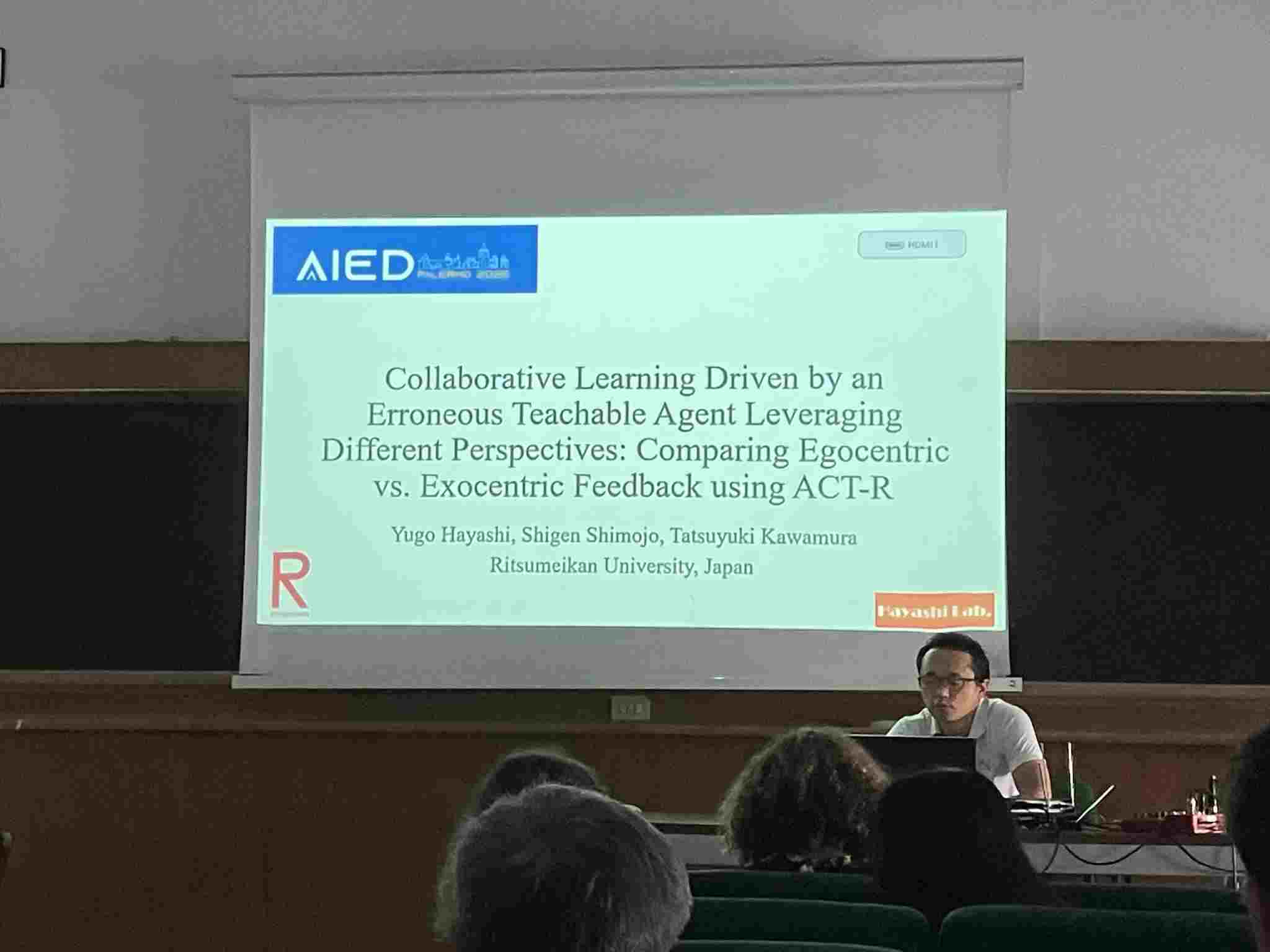RARA Associate Fellow
Interdisciplinary Research on “Cognitive Collaboration and Support”:
Integration of Psychology and Information Science



Interdisciplinary Research on “Cognitive Collaboration and Support”:
Integration of Psychology and Information Science
SCROLL
FELLOW PROFILE
Serving as a Professor at the College of Comprehensive Psychology, Ritsumeikan University, Japan. Previously served as a Research Associate at the College of Information Science and Engineering at Ritsumeikan University (2010-2013) and Assistant Professor at the Faculty of Library, Information and Media Science, University of Tsukuba (2013-2014). Served as an Associate Professor at the College of Letters (2014-2015) and the College of Comprehensive Psychology at Ritsumeikan University (2016-2021).
During this time, he also worked at the Human Computer Interaction Institute, Carnegie Mellon University as visiting faculty (2017-2018, 2024). He has (co-)authored more than 180 proceedings, journal articles, and international/domestic conference papers.
SEE ALSO
Integration of Psychology and Information Science for the Development of Methods to Support Collaborative Learning
This research aims to understand human cognitive and behavioral mechanisms in collaboration between people, between people and artifacts, and between people mediated by artifacts.
The research methods include (1) investigating cognitive-behavioral mechanisms through psychological experiments, (2) developing cognitive computational models based on experimental evidence using cognitive science methods, and (3) creating applications that use these models to support collaborative activities. So far, we have been conducting psychological experiments on human collaborative problem-solving using conversational agents and have also developed collaborative learning support systems based on models of human interactions.
As an undergraduate, I studied sociology and social psychology, and in graduate school I studied cognitive science and artificial intelligence, conducting research at the intersection of psychology and computer science. Moreover, having spent my childhood and high school years in California, USA, I have long been interested in cross-cultural and inter-disciplinary integration. I have also been interested in diversity and fusion as a major theme since my doctoral dissertation, as insights from different perspectives are important for breakthroughs and paradigm-building in science.
I am looking forward to conducting research involving young researchers and graduate students both from within and outside the university. I aim to actively employ student fellows and RAs not only from psychology but also information science and other fields to advance our research. Specifically, I would like to collaborate on cognitive science research focusing on human-human collaboration and collaborative learning support using AI agents. I would also like to conduct experiments and international comparative research with university students and students from affiliated schools.
We will update the current system and develop a new system together in collaboration with researchers and staff. We will also invite student fellows and RAs to participate in our research activities, and build a research infrastructure through the collection and analysis of data from university students. Subsequently, we would like to collect data from a wide range of age groups other than university students, and further develop our research globally through international research exchanges.
Ritsumeikan University has strong international orientation and leads Japan in some fields. To become a next-generation research university, it is necessary to accelerate the dissemination of our research capabilities by collaborating with overseas universities. We have one of the largest psychology departments in Japan, and researchers from the Faculty of Information Science and Technology and Faculty of Science and Engineering are conducting cutting-edge research on AI and human interfaces. I believe that collaboration among these researchers will make a significant contribution not only to the university but also to society.
Partnerships:
I was a research assistant at the College of Information Science and Technology from 2010 to 2013. In promoting this research, I would like to establish a partnership with researchers not only in the College of Comprehensive Psychology, where I am now, but also in the College of Information Science and Engineering and the College of Science and Engineering.
I have been conducting joint research with international faculty members since my time as an assistant professor and am currently collaborating with a professor from the School of Global Studies on a Government Grant-in-Aid for Scientific Research.
Research collaborations:
To create good synergy in collaboration with researchers, I think it is essential to first establish a certain common understanding about the research theme. Then, I would like to emphasize the process of getting to know each other well enough and building relationships of trust so that the strengths of the researchers can be fully utilized. We want to clarify each other’s roles, communicate with each other, and work toward the goal of publishing in high-impact journals and presenting at top conferences.





